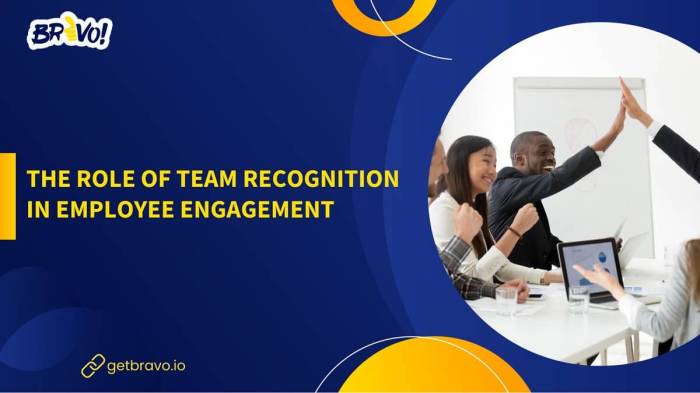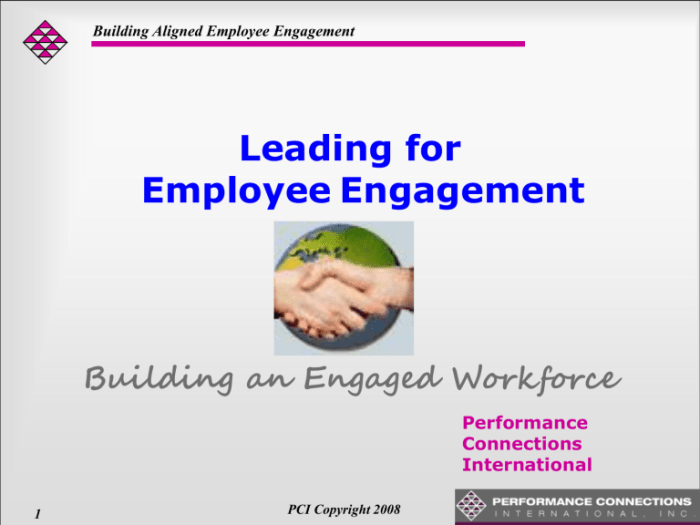As recognition is closely aligned with employee engagement and promotes teamwork takes center stage, this opening passage beckons readers into a world crafted with expertise, ensuring a reading experience that is both absorbing and distinctly original.
Recognition has emerged as a cornerstone of modern workplaces, profoundly influencing employee morale, motivation, and collaboration. This essay delves into the intricate relationship between recognition, employee engagement, and teamwork, exploring the psychological mechanisms that underpin this dynamic and providing practical guidance for organizations seeking to enhance their recognition practices.
Understanding the Correlation between Recognition and Employee Engagement

Recognition plays a pivotal role in enhancing employee morale and motivation, which in turn fosters engagement. Studies have consistently demonstrated a positive correlation between the two. For instance, a survey by Deloitte found that employees who felt recognized were 31% more likely to be highly engaged in their work.
Recognition serves as a psychological motivator, triggering the release of dopamine, a neurotransmitter associated with pleasure and reward. This positive reinforcement strengthens desired behaviors, including those that contribute to employee engagement, such as collaboration, initiative, and commitment.
The Role of Recognition in Fostering Teamwork
Recognition can significantly enhance collaboration and teamwork within organizations. By acknowledging individual contributions, organizations foster a sense of shared purpose and collective responsibility. When team members feel valued and appreciated, they are more likely to support and complement each other’s efforts.
For example, a study by the Harvard Business Review found that teams that received regular recognition were 25% more likely to collaborate effectively and achieve their goals. Recognition strengthens team dynamics by creating a positive and supportive work environment where individuals are motivated to work together.
Methods for Implementing Effective Recognition Programs
Developing and implementing effective recognition programs requires a comprehensive framework that considers the following:
- Types of Recognition:Identify different types of recognition, such as monetary rewards, public praise, and peer-to-peer recognition, and tailor them to the preferences of various employee demographics.
- Timeliness and Meaningfulness:Recognition should be timely and specific, focusing on observable behaviors or accomplishments that align with organizational values and goals.
- Communication and Transparency:Establish clear communication channels to deliver recognition effectively and ensure transparency in the recognition process.
Measuring the Impact of Recognition Programs, Recognition is closely aligned with employee engagement and promotes teamwork
Evaluating the effectiveness of recognition programs is crucial for continuous improvement. A set of metrics should be designed to measure both qualitative and quantitative outcomes:
- Qualitative Feedback:Gather feedback from employees through surveys, focus groups, or individual interviews to assess their satisfaction with the recognition program and its impact on their motivation and engagement.
- Quantitative Metrics:Track metrics such as employee engagement scores, productivity, turnover rates, and customer satisfaction to quantify the ROI of recognition initiatives.
Expert Answers: Recognition Is Closely Aligned With Employee Engagement And Promotes Teamwork
What is the primary benefit of recognition in the workplace?
Recognition fosters employee engagement, motivation, and a sense of belonging, leading to increased productivity and job satisfaction.
How does recognition contribute to teamwork?
Recognition strengthens team dynamics by acknowledging individual contributions, promoting collaboration, and fostering a shared sense of purpose and responsibility.
What are some best practices for delivering effective recognition?
Effective recognition is timely, specific, meaningful, and aligned with individual preferences. It should be delivered consistently and in a variety of forms.

